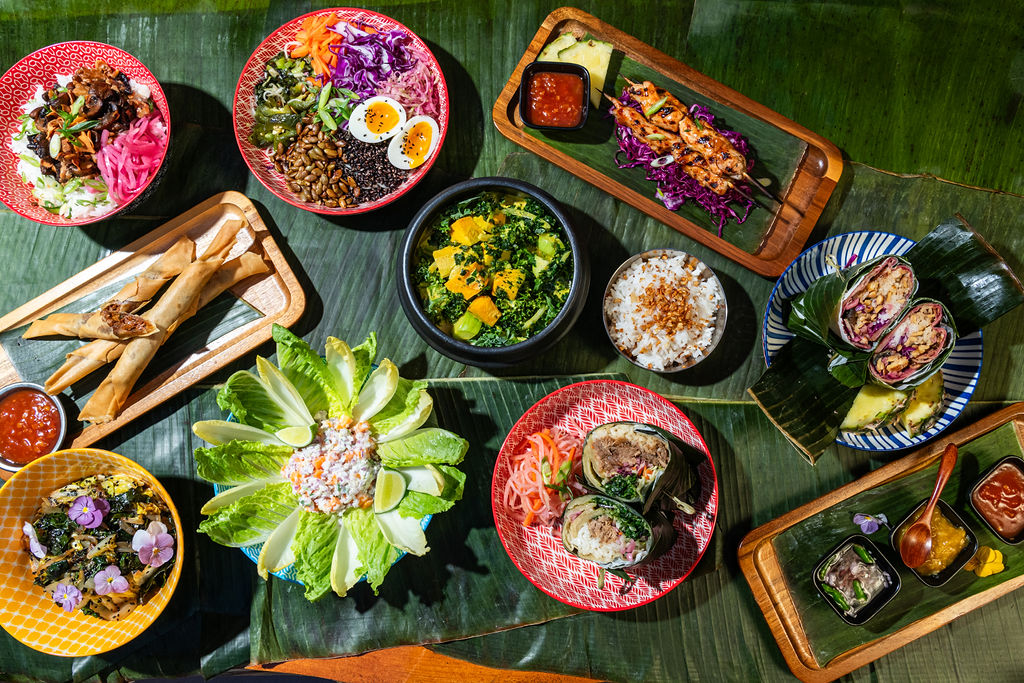When Deanna Sison closed her Filipino-Mexican fast-casual restaurant, Mestiza, in San Francisco’s SoMa neighborhood on March 17, 2020, it took a heavy toll—and not merely on her livelihood. The pandemic wreaked havoc on her community, causing numerous Filipino-owned businesses in the area to fold.
“It was pretty devastating,” she said.
Not many shuttered restaurants mount comebacks after four years—especially if they were only open for three—but Sison is a force. She owns the SoMa soul food restaurant Little Skillet and the adjacent cocktail bar Victory Hall, and on Thursday Mestiza 2.0 will reopen in a new location at 214 Townsend St. not far from Oracle Park and just around the block from her other endeavors. The space became available last year, and Sison had to snap it up.
“I couldn’t shake the idea of Mestiza,” she said. “I really love the concept. It was super-personal to me.”
This iteration has culinary ambitions beyond the original, which was essentially the Filipino equivalent of a taqueria. Over the last four years, there’s been a quiet revolution in Filipino cuisine, which—while hardly monolithic—has long been characterized by a reliance on pork, oxtail and other fatty meats, along with generous portions of rich, fried foods like lumpia.
Pioneered in part by the food-truck-turned-brick-and-mortar Señor Sisig, with its “vegano” menu, a new generation of chefs is recasting the archipelago’s acidic dipping sauces and tropical flavor profiles. At Mestiza—the name refers to a woman of mixed heritage, specifically in a colonial context—this translates into inventive dishes like golden beet kinilaw (the Philippines’ answer to ceviche), a version of the traditionally pork-centric staple sisig that’s made with mushroom tempeh, chili garlic crisp and calabasa coconut curry. It’s “plant-forward,” Sison said, with about a 70-30 ratio of meat-less to meat-filled options.
“Through the pandemic, I did a lot of playing around with diets,” she said, ticking off high cholesterol, diabetes and gout as health concerns prevalent among Filipino Americans. “I wanted to do something very nutritious and healthy, while also still doing something that appeals to my palate.”
Mestiza, which first opened its doors in 2017, will remain a primarily fast-casual enterprise; as a restaurateur, Sison said, that format is what keeps San Francisco operations in business. But one or two nights a week, after all the bowls and wraps have been served, Mestiza’s heated, 30-seat outdoor patio—there is no interior seating—will transform into a more elevated experience as the team puts together a traditional feast known as a kamayan. It’s a fun pretext for Executive Chef Syl Mislang to express herself through seasonal and hyperlocal ingredients, and for Sison to stay rooted in the bountiful, hospitality-driven nature of Filipino dining culture.
“Typically, at a kamayan, you start off with your bases, which would be rice or garlic rice or pancit noodles,” she said, referring to an infinitely modifiable comfort food. “And then you just slowly build on your ulam: your meats, proteins, barbecue, mixed vegetables. Whatever’s seasonal. Then we add in sawsawan, which are dipping sauces we’re going to be making in-house.”
Mestiza’s reopening comes at an auspicious moment for SOMA Pilipinas, the organization that has labored mightily to turn a vast swath of Central SoMa into a cultural destination for the Bay Area’s Filipino communities. (Sison serves as one of its economic advisers.) In particular, Undiscovered, the night market that became a daytime party starting in its 2022 season, has brought thousands of people to places like Kapwa Gardens and to the greenspace in and around the 5M, a mixed-use development project on Natoma Street.
“It’s great to see Mestiza revive from the ashes,” said Desi Danganan, a Filipino community activist and the founder of nonprofit business incubator Kultivate Labs. Calling it “just another indication of Filipino resilience,” he noted that it’s only the most recent of the neighborhood’s green shoots. The week-old Filipino-run sandwich shop Izzy & Wooks is the first business of any kind to open in the nearby Metreon mall since the pandemic began. A new Filipino art gallery and tattoo shop is on the horizon as well, Danganan said.
For Sison, Mestiza is about “satisfying a familiar taste” and helping to keep her community anchored.
“I’ve been operating in SoMa for 15-plus years, throughout the various businesses,” she said. “It makes me really proud. And that’s another huge impetus of why I wanted to keep Mestiza alive.”
Mestiza
- Website
- www.mestizasf.com
